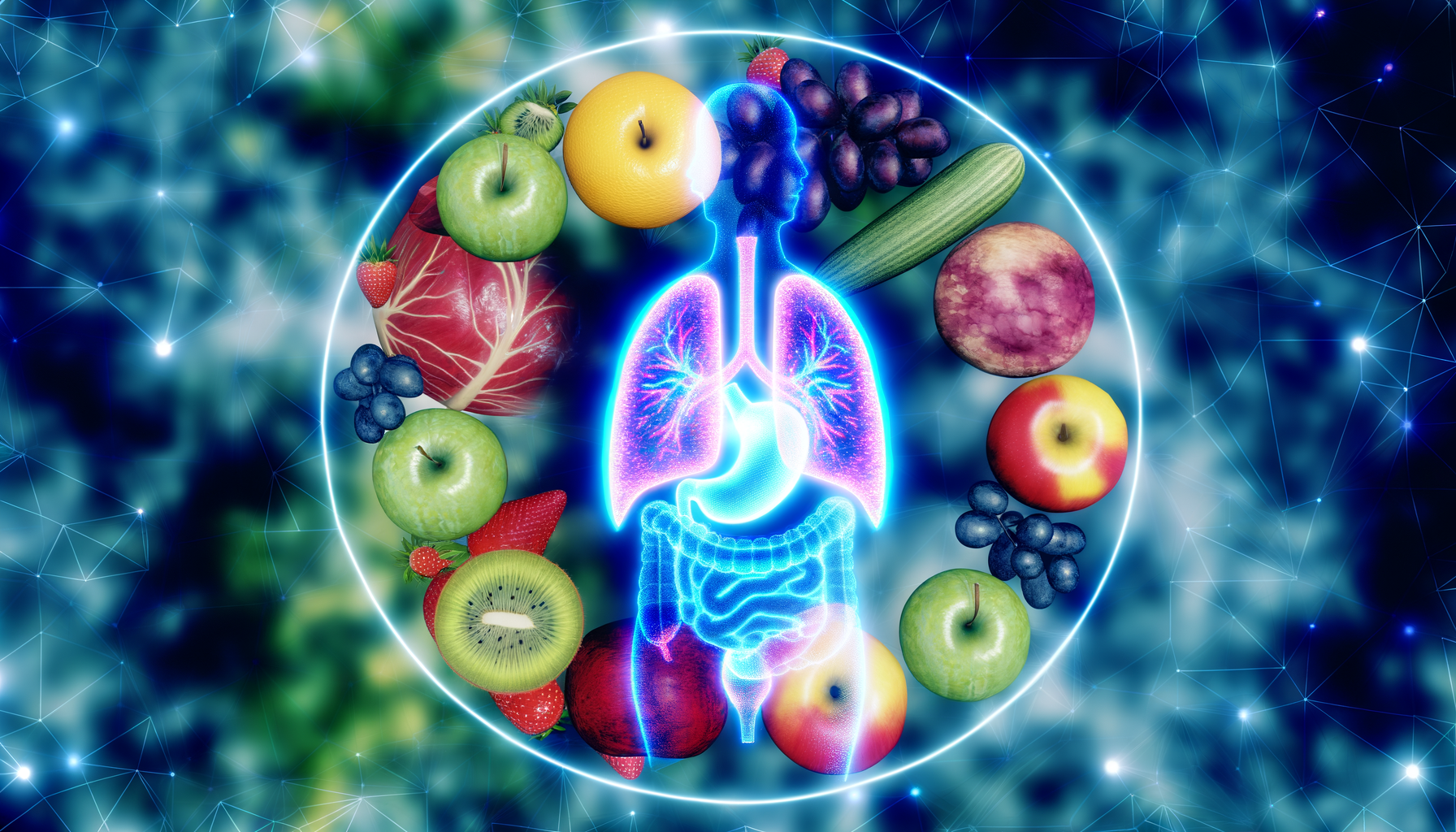The intersection of cutting-edge technology and nutritional science is revolutionizing how we approach health and regenerative processes, particularly in the context of organ regeneration. Concepts like holographic healing, regenerative nutrition, and virtual organ support are pioneering new frontiers in medical research and treatment. This blog post explores the innovative dimensions of these concepts and how they intersect with nutrition, particularly focusing on the impact of calorie quality on regenerative processes.
Introduction to Holographic Healing
Holographic healing involves using holographic principles to visualize and interact with biological systems. This concept, though still speculative in terms of direct biological application, draws from the idea of holographic technology being capable of precise imaging and measurement. For instance, in medical imaging, holography can provide detailed, interactive visualizations of organs and tissues, aiding in diagnosis and treatment planning. While not directly linked to calorie quality, this technology represents a potential future in which precise nutritional advice could be given based on detailed holographic models of an individual’s health.
Applications of Holography in Medical Imaging
Holographic techniques are being explored for their potential to revolutionize medical imaging. They enable doctors to visualize internal structures accurately, facilitating precise surgical planning and training. In addition to visualizing skeletons, organs, muscles, and blood vessels, holography can help identify abnormal tissue growth, which is crucial for disease detection and monitoring. Companies like Red Digital Cinema are developing high-resolution technology that could enhance holographic medical imaging in the future.
Regenerative Nutrition
Regenerative nutrition focuses on using diet to promote healing and regeneration within the body. This includes not just the quantity of calories consumed but also the quality, as certain nutrients can enhance cellular regeneration and tissue repair. Research shows that calorie restriction, for example, can enhance the function of stem cells, which are vital for tissue regeneration. Tools like Calorie Calculator Cloud can help individuals tailor their calorie intake to meet these needs.
Calorie Quality and Stem Cell Function
Recent studies highlight the importance of calorie quality in enhancing stem cell function. Calorie restriction has been shown to improve the availability and activity of stem cells in muscle tissue, leading to better regeneration and repair. This is achieved by boosting mitochondrial function and inducing metabolic shifts that favor longevity and health. Nutrients like omega-3 fatty acids and Vitamin D, available in foods from brands like Nordic Naturals and Garden of Life, are crucial for supporting these processes.
Virtual Organ Support
Virtual organ support involves using digital technologies to simulate organ function, which can aid in understanding and managing organ health. While this concept is more about simulation than direct application to regeneration, it demonstrates how technology can support healthcare by providing detailed insights into organ behavior and potential responses to different nutritional interventions. Platforms like PhysioNet offer extensive resources for studying physiological signals, which could inform nutritional strategies aimed at optimizing organ function.
Applications in Nutrition and Health
Combining regenerative nutrition with insights from virtual organ support could revolutionize personalized health advice. By understanding how specific nutrients affect organ function, individuals can tailor their diets to support their health goals more effectively. For instance, using tools like Calorie Calculator Plans, individuals can design a calorie intake plan that not only meets their energy needs but also supports regenerative processes within the body.
Conclusion and Future Directions
While concepts like holographic healing and virtual organ support are primarily speculative or in the early stages of research, they highlight the potential for future innovation in health technology. Meanwhile, regenerative nutrition offers practical strategies for enhancing organ health and regeneration. By focusing on calorie quality and leveraging technological tools for personalized nutrition planning, individuals can take proactive steps towards improving their health outcomes. For those interested in optimizing their nutrition for regeneration, exploring resources like Healthline for nutrition insights and Dietitian.org for professional guidance can be invaluable.
To enhance your understanding of how nutrition intersects with regenerative processes and to start optimizing your diet for better health, consider using services like Calorie Calculator Cloud and consulting with nutritional experts who can provide tailored advice based on your health goals.








